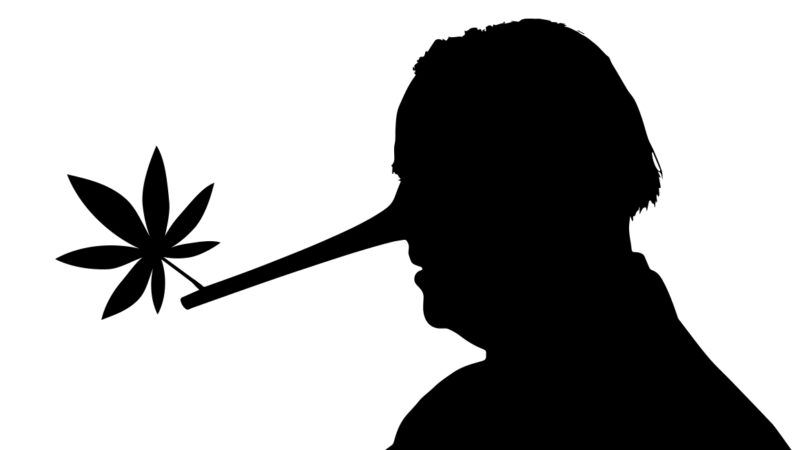Biden Exaggerates His Work To Reform Marijuana Policy
Biden has not delivered on his promise to decriminalize marijuana.

In a campaign video directed at "young voters" that she posted on X (formerly Twitter) in February, Vice President Kamala Harris bragged that "we changed federal marijuana policy, because nobody should have to go to jail just for smoking weed." During his State of the Union address in March, President Joe Biden said he was "expunging thousands of convictions for the mere possession [of marijuana], because no one should be jailed for simply using or have it on their record."
Neither claim was accurate. It is not surprising that Biden and Harris would try to motivate younger voters, whose turnout could be crucial to their reelection, by highlighting their administration's "marijuana reform," since those voters overwhelmingly favor legalization. But the steps Biden has taken fall far short of that goal, and his description of them exaggerates what they accomplished.
During his 2020 campaign, Biden promised to "decriminalize the use of cannabis" and "automatically expunge all prior cannabis use convictions." He has not delivered on either promise, which would require new legislation.
In October 2022, Biden announced a mass pardon for people convicted of simple marijuana possession under federal law and directed the Department of Health and Human Services (HHS) to review the drug's classification under the Controlled Substances Act. Neither of those moves actually "changed federal marijuana policy." Nor did they free any prisoners (because the pardons excluded people convicted of growing or selling pot), clear anyone's record (because pardons do not entail expungement), or prevent arrests for marijuana possession, which under federal law remains a misdemeanor punishable by a minimum $1,000 fine and up to a year in jail.
HHS ultimately recommended that the Drug Enforcement Administration (DEA) move marijuana to Schedule III, a category that includes prescription drugs such as ketamine, Tylenol with codeine, and anabolic steroids. Assuming the DEA follows that recommendation, the practical consequences will be modest.
Rescheduling marijuana would facilitate medical research and allow state-licensed cannabis suppliers to deduct standard business expenses on their federal tax returns. But it would not decriminalize the cannabis industry or eliminate obstacles to marijuana banking. Nor would it remove the life-disrupting legal disabilities triggered by participation in that industry, marijuana records, or cannabis consumption. It would not even make marijuana legally available as a prescription medicine, which would require regulatory approval of specific products.
Even if Biden had the power to unilaterally decriminalize low-level marijuana possession, that step would not address today's central cannabis issue: the conflict between federal law and the laws of the 38 states that have legalized marijuana for medical use, including two dozen, accounting for most of the U.S. population, that also allow recreational use. Resolving that conflict would require repealing the federal marijuana ban—a change that Biden has steadfastly refused to support.
This article originally appeared in print under the headline "Biden Exaggerates Marijuana Reforms."


Show Comments (18)